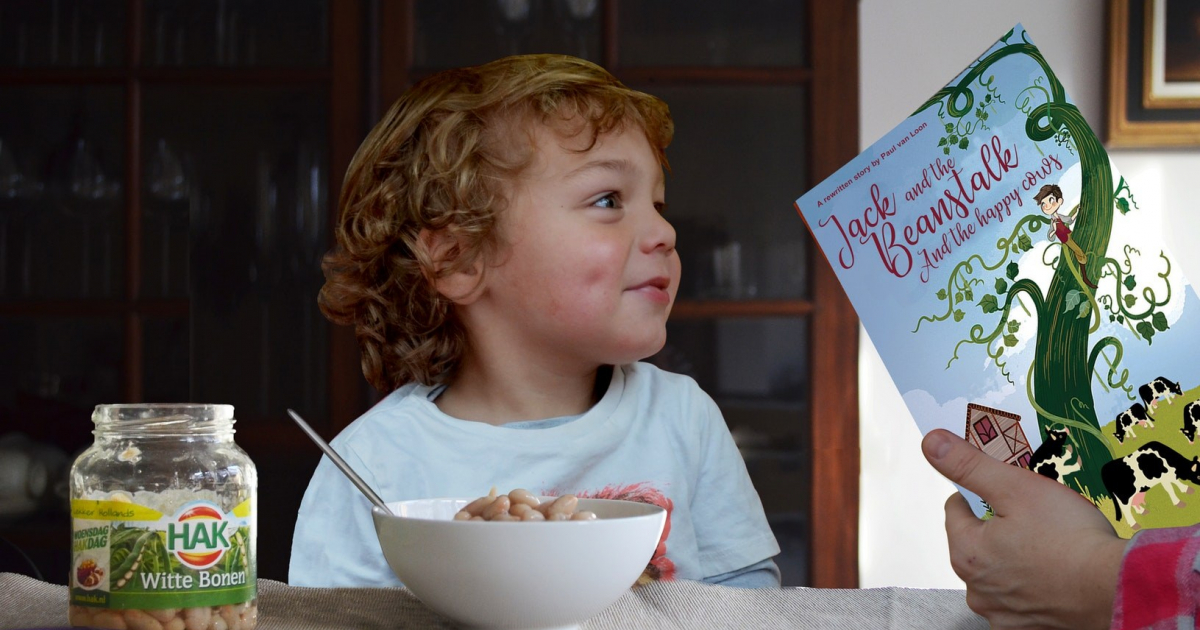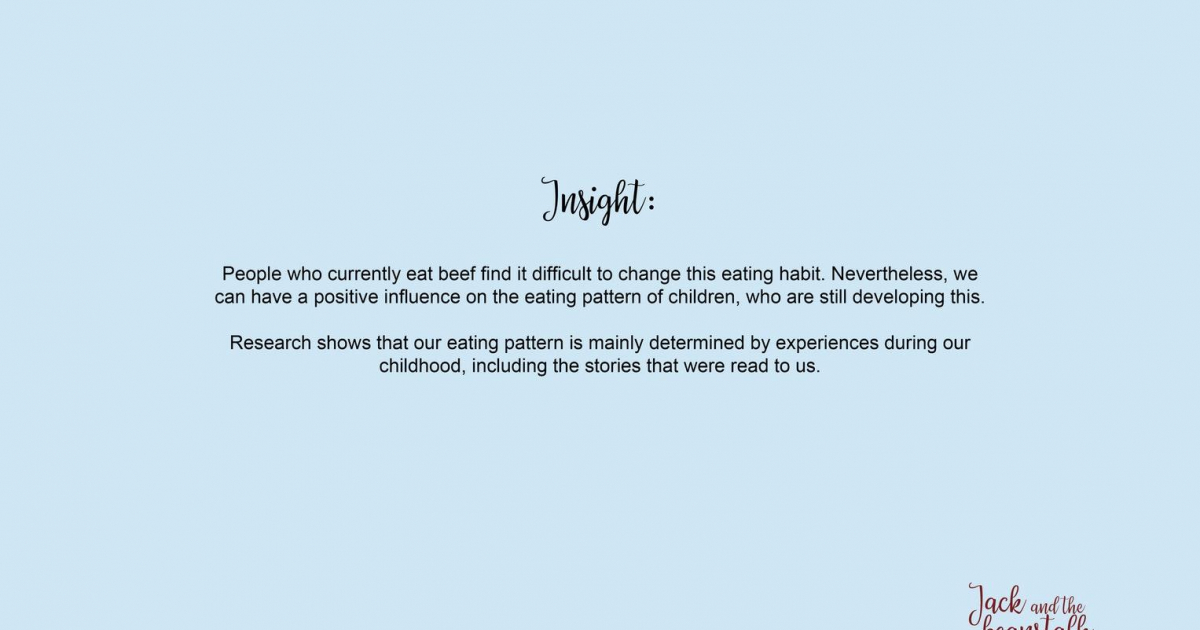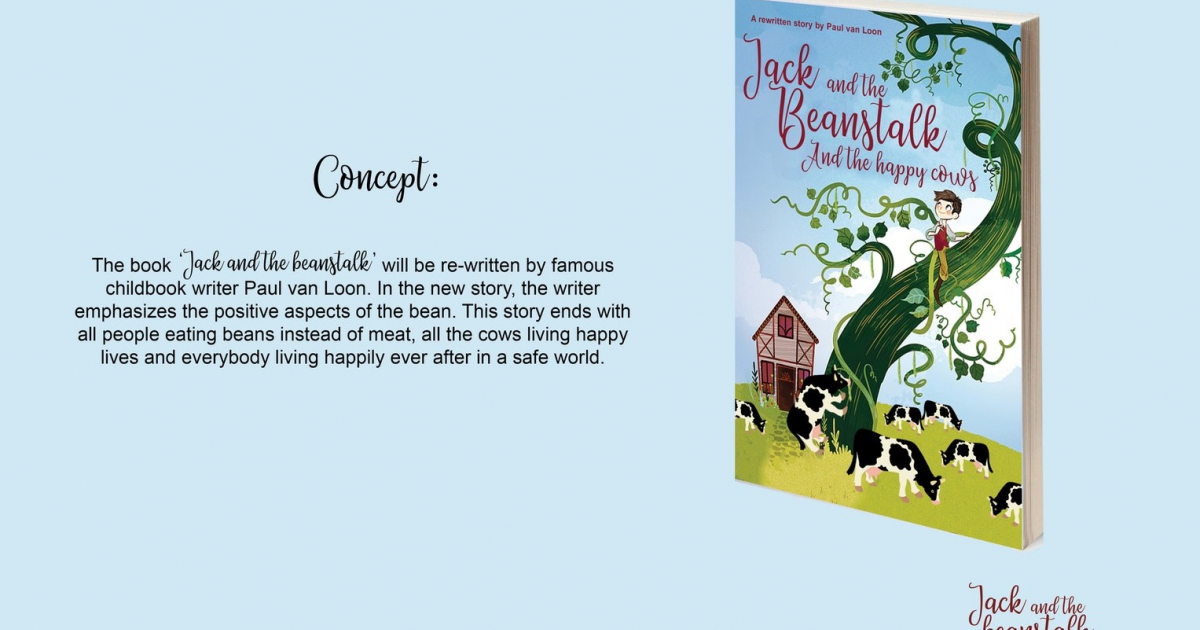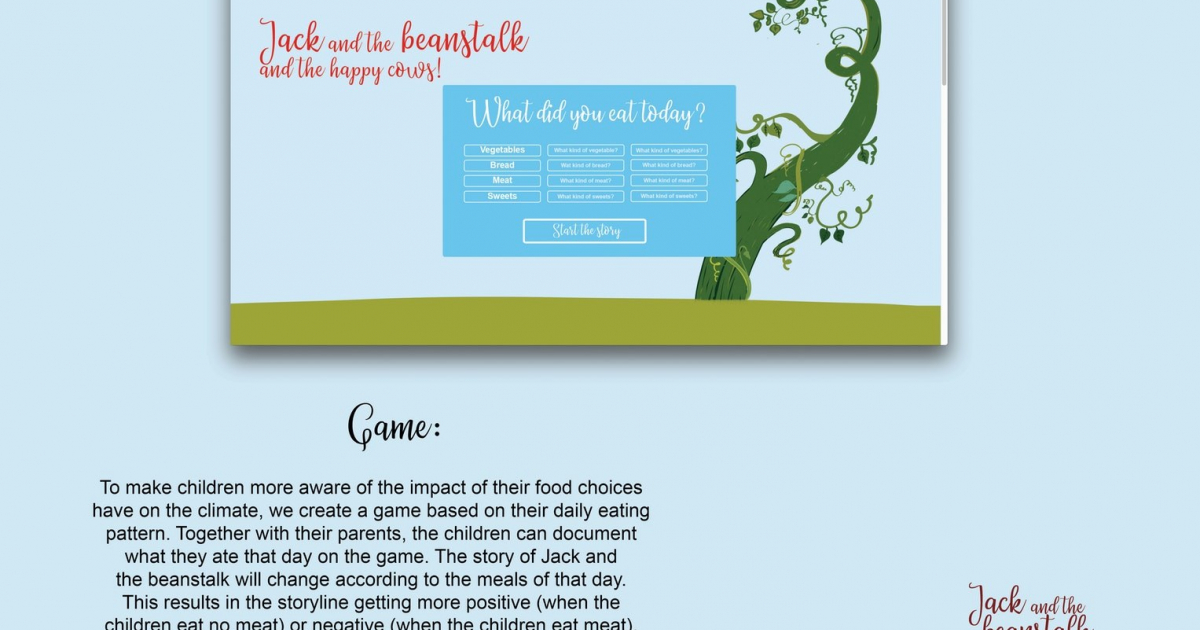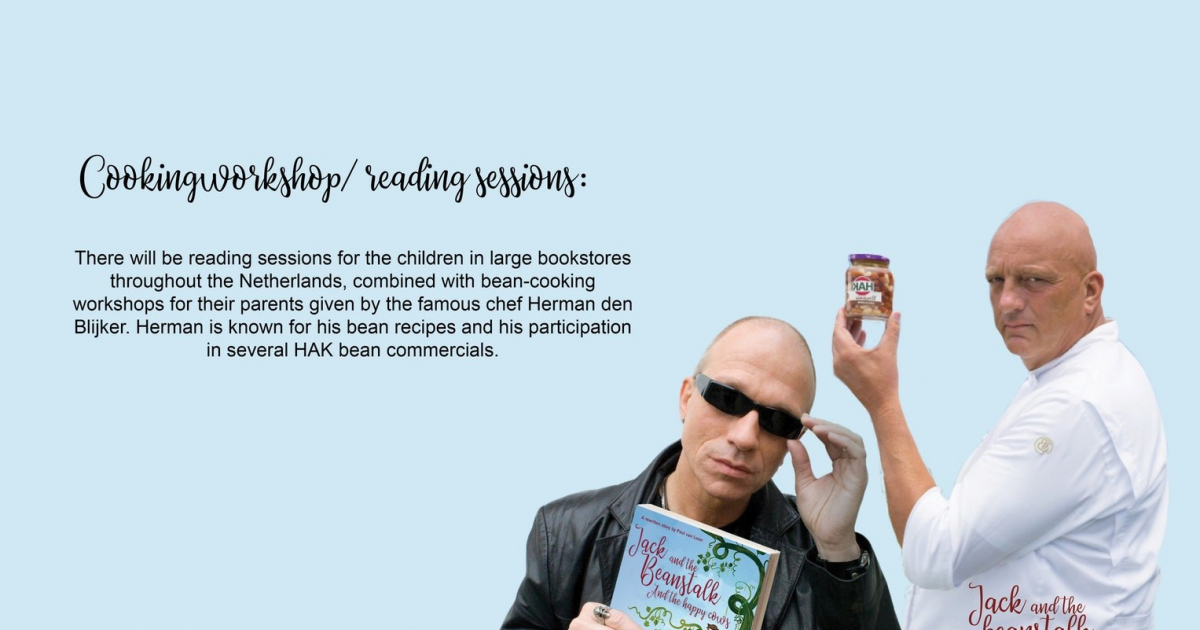Jack and the beanstalk and the happy cows
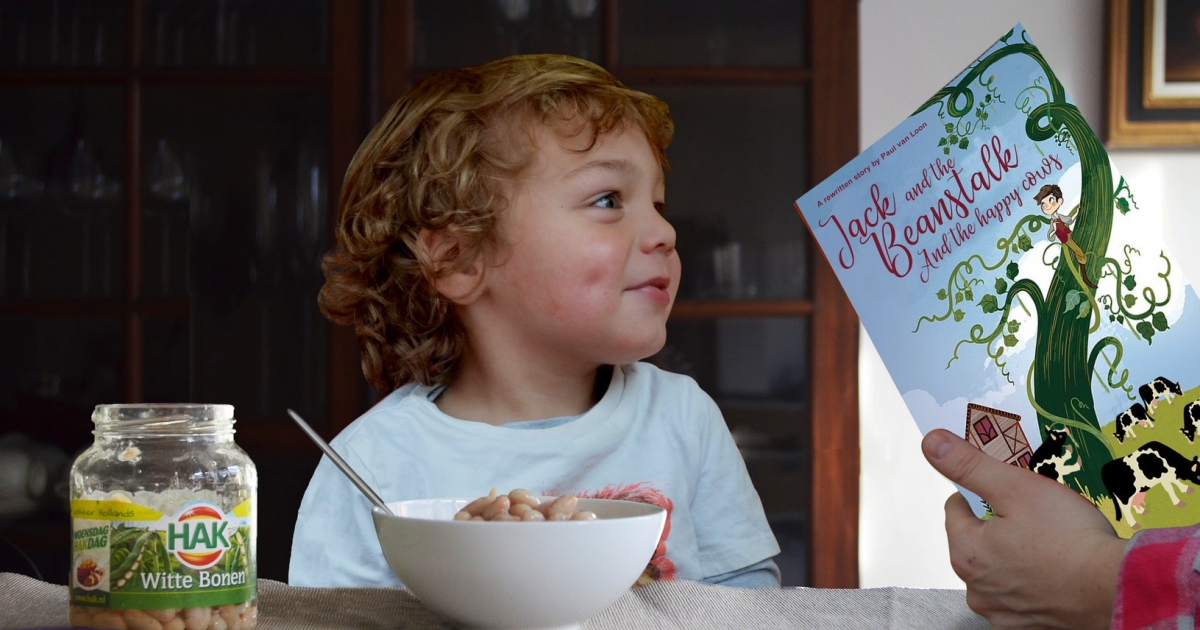
Insight
People who currently eat beef find it difficult to change this eating habit. Nevertheless, we can have a positive influence on the eating pattern of children, who are still developing this.
Research shows that our eating pattern is mainly determined by experiences during our childhood, including the stories that were read to us.
Concept
A rewrite of the children's book ‘Jack and the beanstalk’.
Explanation
We believe that children are first confronted with the magical advantages of beans through this story. The story tells about Jack who traded the last cow for beans. When his mother finds out she angrily throws the beans out the window. The next day Jack finds a beanstalk that reaches the sky and the rest of the story we all know…
Since the advantages of beans are not clearly communicated in the original story, we want to emphasize these advantages in the rewritten end of the story: where all the people eat beans instead of meat, all the cows live happy lives, the world will be save and everybody lives happily ever after.
Conclusion
We cannot change the eating patterns of adults, but we can change the future of our climate through the eating pattern of our children.
Background
The beef industry has the biggest emission of greenhouse gasses, therefore it contributes to climate change enormously.
The cultivation and production of beans have a low climate tax, since the consumption of beans has less environmental impact, compared to meat-consumption.
